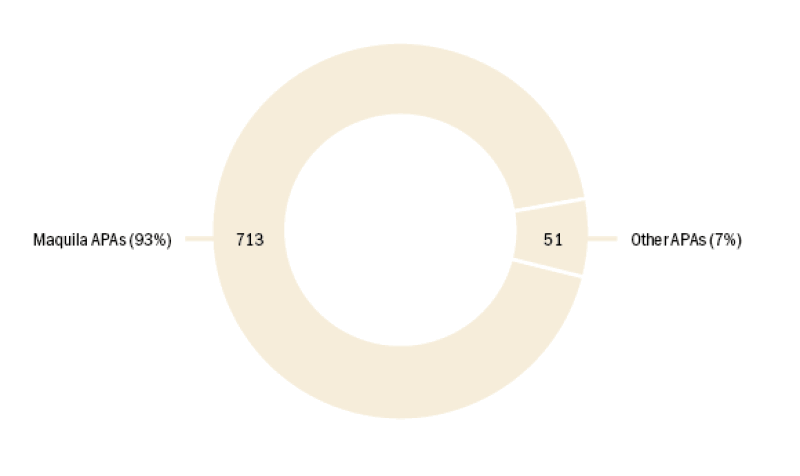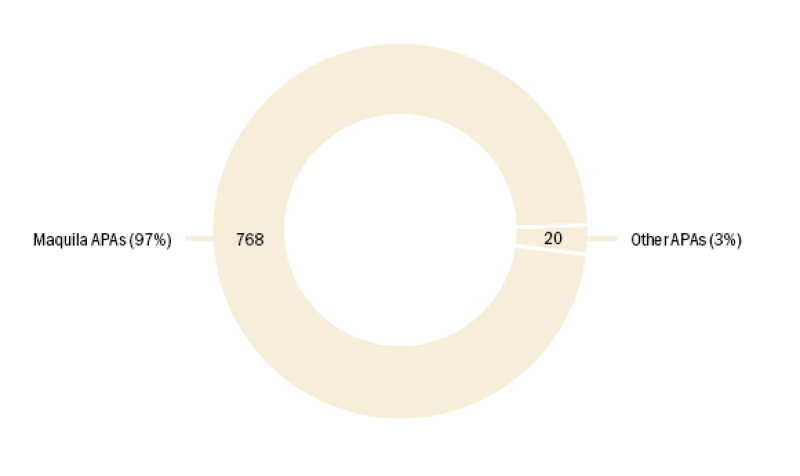Over the last 25 years, the transfer pricing (TP) landscape in Mexico has developed in a positive way. Information provided by the Instituto Nacional de Transparencia, Acceso a la Información y Protección de Datos Personales (INAI) shows that the Mexican Tax Authority (Servicio de Administración Tributaria, SAT) has significantly increased its advanced pricing agreement (APA) cases within the last decade and this is likely to continue to grow in the coming years.
This is a consequence of the current environment, because businesses have been evolving making those more complex, competitive and challenging, due to new technologies, but also due to the existence of new competitors, ways to conduct operations, value added and consumers’ preferences.
A more globally integrated market has a constant flow of products, intangibles, services and financial instruments that move across borders and business units. So, tax authorities and regulatory entities around the world are permanently cooperating to share information about multinational enterprises (MNEs). In this environment, companies need to have globally consistent TP methodologies that help mitigate the risks derived from a tax audit and avoid double taxation issues.
Consequently, it is essential for MNEs to analyse the inter-company arrangements beyond the individual transaction and include into the equation the value chain, intangibles, services and other variables that might have an impact into the pricing. Since this is evolving into more complex TP analyses, the SAT has been proactively seeking to pursue APA or bilateral APA (BAPA) discussions.
An APA is a lengthy administrative procedure from a taxpayer’s perspective (current statistics support this argument). On average, an APA negotiation can take approximately 3.5 years, while a BAPA negotiation usually takes an additional year to such term, on average. However, the upside to this procedure is the legal certainty to reach an arm’s-length outcome on this negotiation with the SAT, under a friendly controversial environment, as opposed to a TP audit over one or several inter-company transactions which could, in turn, trigger significant adjustments, penalties, surcharges and inflation updates.
Although most of the current APAs are related to maquiladora cases, it is not uncommon to have other cases in Mexico, especially for transactions where there could be several critical assumptions that would be advisable to be discussed in advance with the tax authorities, in order to gain some clarity on what their view might be on a specific situation.
As an example, the financial and economic impact derived from the COVID-19 pandemic could have negative consequences on TP policies that might not necessarily imply there is a risk on deviating from the arm’s-length standard on inter-company transactions but rather a sudden change in circumstances within the taxpayers’ industry. Therefore, it would be advisable to discuss these impacts ex ante with the SAT as opposed to having potential questionings from sharp profitability variations when comparing TP informative returns over the last few years.
As of December 2020, the SAT issued 764 APAs in the last decade, mostly negotiated as part of the maquiladora regime during the 2014–2017 period throughout the Qualified Maquiladora Agreement jointly developed and negotiated between Mexico and the US tax authorities.
Figure 1

Table 1
APAs issued as of December 2020 |
||
Year |
Non-maquila APAs |
Maquila APAs |
2011 |
9 |
0 |
2012 |
9 |
4 |
2013 |
5 |
0 |
2014 |
3 |
1 |
2015 |
6 |
7 |
2016 |
4 |
13 |
2017 |
2 |
328 |
2018 |
9 |
290 |
2019 |
2 |
63 |
2020 |
2 |
7 |
On the other hand, as of December 2020, the SAT continues to negotiate 788 APAs, most of them being part of the renewal procedure for maquiladoras in order to comply with current TP regulations in Mexico.
Figure 2

Moreover, the SAT has been continuously engaging in BAPA negotiations with other foreign tax authorities over the last decade. Most of these bilateral rulings have been negotiated with the IRS, and with other tax jurisdictions such as Germany, Japan and Switzerland.
Figure 3

USA |
16 |

Germany |
1 |

Japan |
1 |

Switzerland |
1 |
It is logical to expect that, over the coming years, the SAT will continue to negotiate BAPAs with a significantly higher number of competent tax authorities across several jurisdictions. As of 2020, BAPAs negotiations between the SAT and other jurisdictions continue and the BAPA cases have increased as seen in Figure 4.
Figure 4

USA |
25 |

Japan |
4 |

Germany |
2 |

Netherlands |
1 |

Sweden |
3 |

Switzerland |
4 |

South Korea |
2 |

Italy |
1 |
Under the current economic situation and the TP implications mentioned above, it is only natural to expect taxpayers’ willingness to come forward and start engaging in TP discussions with the SAT officials soon. This certainly will result in an additional challenge for the SAT in order to conclude the ongoing open cases, while trying to review and start discussions on new cases due within the next few months.
Ricardo Barbieri
Transfer pricing partner, EY
Ricardo Cruz
Transfer pricing partner, EY













